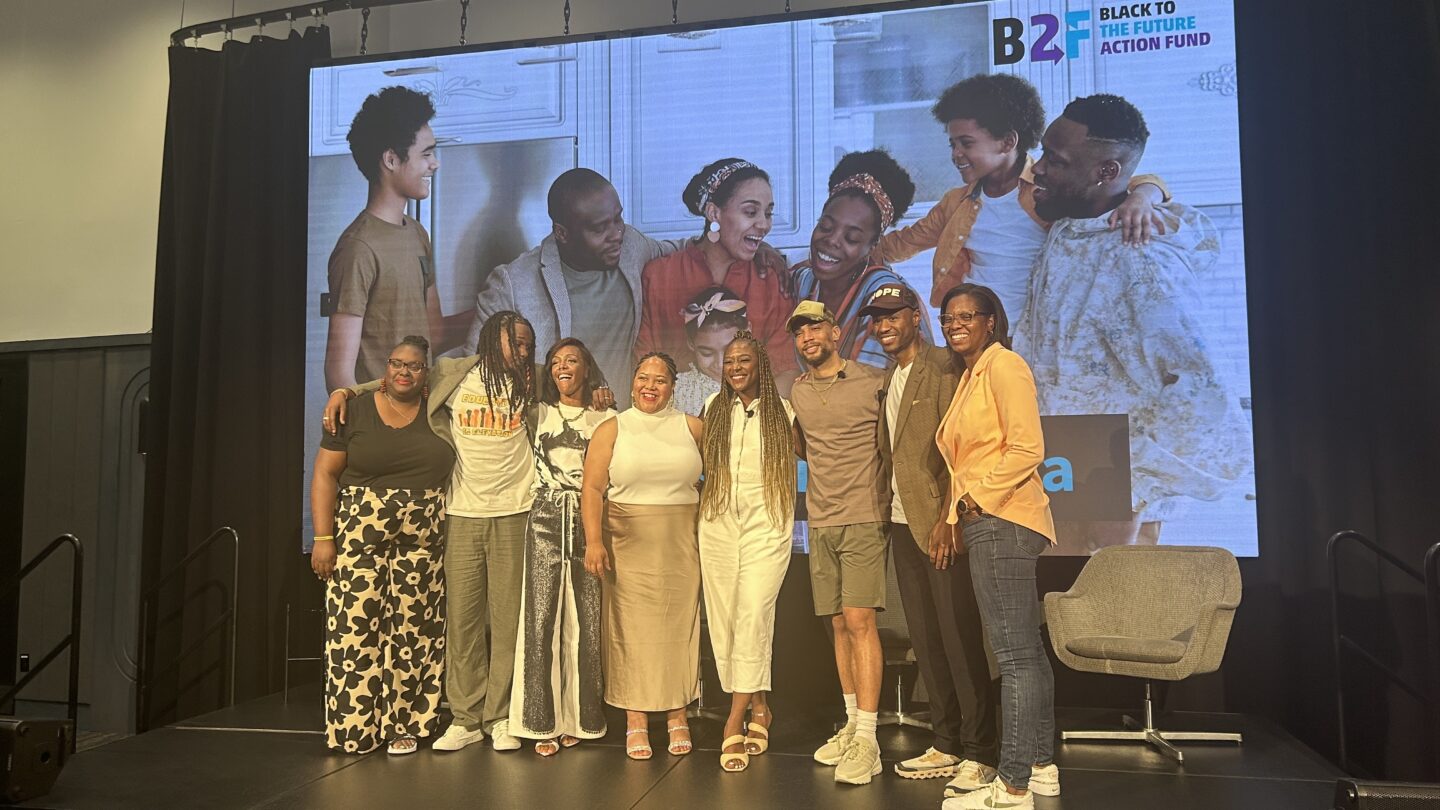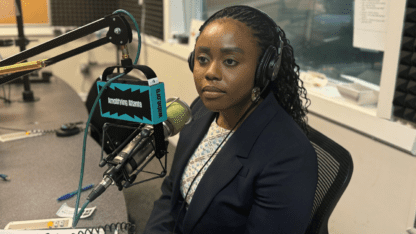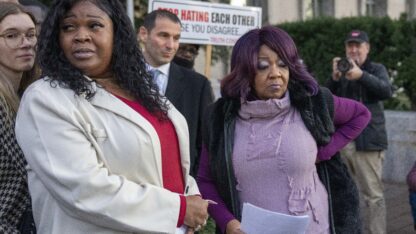A new report from Black to the Future, a national action fund initiative, breaks down the top economic priorities and concerns of black communities in Atlanta and beyond.
The Black Economic Agenda, a policy guide offering solutions to increase political power, was unveiled at an event sponsored by the “Black” in Atlanta on Thursday.
As singer Roy Ayers Ubiquity’s 70’s hit “Everybody Loves The Sunshine” blares over the speakers, guests enter the Gathering Spot, a private black-owned social club in Atlanta.
According to its website, the agenda focus on state solutions that governors and legislatures can use to help improve the conditions for Black people in their states.
Attendee Kierra Stanford says one thing preventing her East Point community from thriving is its access to proper healthcare.
“We got food deserts paired with healthcare deserts, people are dying,” said Sanford, who also serves as the lead organizer of The New Georgia Project.
Founded by politician and voting rights activist Stacey Abrams, New Georgia serves as a nonpartisan effort to register and engage Black, Latinx and young voters.
Childcare, livable wages, housing and education were also identified as economic priorities for Black voters. The agenda was informed by responses from over 200,000 Black Americans through data collected in the 2023 Black Census and supplemental focus groups.
“We’re also looking at how we can have a tax system and a budget system that works for us, as well as wages that work for us as well as workers’ protections,” added Kristin Powell, the principal of the Black Futures Lab, which conducts the Black Census Project and the Black to the Future Action Fund.
“It’s really important in this state where there’s so much movement in black individual wealth and black businesses that we also have a conversation about the policies that stand in the way of our whole community truly having wealth … not just in this state but across the country.”
The group wants elected officials and political candidates to use the report to prioritize and connect with Black voters ahead of the November election. They plan to expand this to several more states.
Powell says the agenda does not advocate for a presidential nominee but acknowledges that Vice President Kamala Harris being elected into office “would make advocacy easier and safer for black communities.”
“There is a lot of money being spent on misinformation that is literally being spent on the black community,” said Conscious Lee, a Houston-based educator and storyteller who was a panelist during the event. “For instance, the idea that Kamala isn’t black, right?”
He says the agenda helps people in his community make informed decisions more tailored to their well being.
“They approach us from a holistic approach,” added singer and songwriter Trae Crockett said following the panel.
“For example, if you say that we’re gonna address health care, but we’re not gonna address housing … you leave room for people to undercut us again because they may give us that but still they may take from us in another area.”









